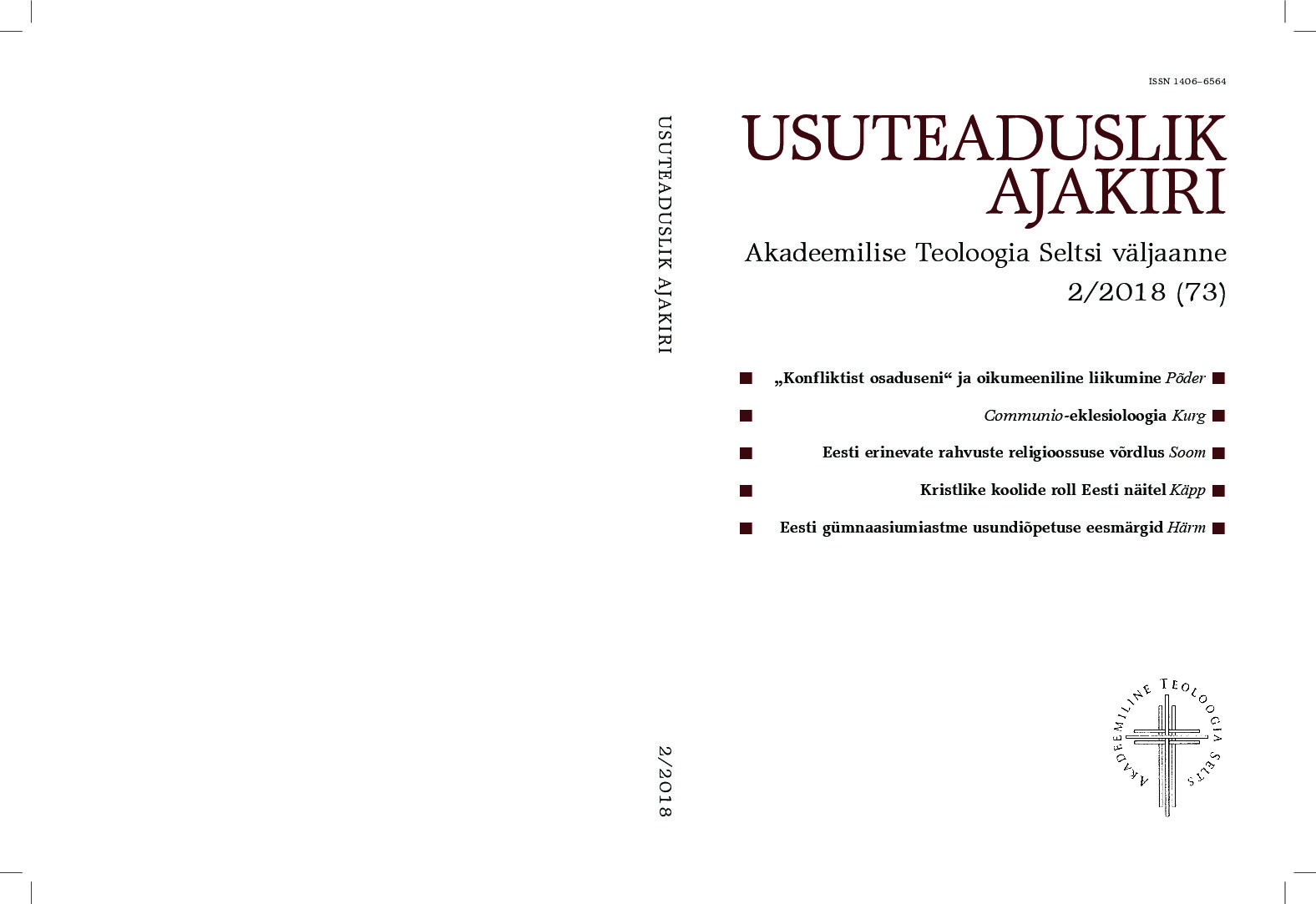EESTI GÜMNAASIUMIASTME USUNDIÕPETUSE EESMÄRGID ÕPETAJATE PILGU LÄBI
Teacher Opinions of the Objectives of Religious Education at a Gymnasium Level in Estonia
Author(s): Silja HärmSubject(s): Christian Theology and Religion, Education
Published by: Akadeemiline Teoloogia Selts
Keywords: Religious Studies; Religious Teachers; Estonia; Discourse Analysis;
Summary/Abstract: The article describes discourses of teaching objectives in religious education (RE) based on interviews with upper secondary school teachers in Estonia. In analysing the interviews content analysis and discourse analysis are used. Three main discourses are discernible: nurturing citizens of the world, nurturing European identity and self-reflective discourse. The same discourses are represented also in the state RE syllabus. In case of nurturing citizens of the world, knowledge about basic beliefs and practices of world religions is provided. The main rationale behind teaching religion is helping the students to cope with everyday situations in the globalizing world. In case of nurturing European identity interconnections between religion, culture and tradition are highlighted. Identity questions are emphasized and Christianity is seen as having played an important role in the formation of cultural space of Europe and Estonia. In case of self-reflective discourse attention is mainly paid to the capability of pupils to form and express substantiated personal opinions on religious matters. Main focus is on the existential issues that are relevant in the lives of the pupils. Unlike other discourses, supporting religious development of adolescents is considered to be important. There is no clear-cut links between biographical background of the teachers and discourses they use. The educational background of the teachers, however, seems to influence the choice of primary discourse. Especially noteworthy is the fact that all the teachers who prioritize the self-reflective discourse have either passed teacher training in RE or studied theology. Possibly such an educational background may give a teacher more selfconfidence in dealing with religion and creating links between the theoretical knowledge and life experiences of the pupils. Nonetheless, not all the teachers who have passed training in RE teaching or theology put emphasis on selfreflective discourse.
Journal: Usuteaduslik Ajakiri
- Issue Year: 2018
- Issue No: 2 (73)
- Page Range: 112-131
- Page Count: 20
- Language: Estonian

